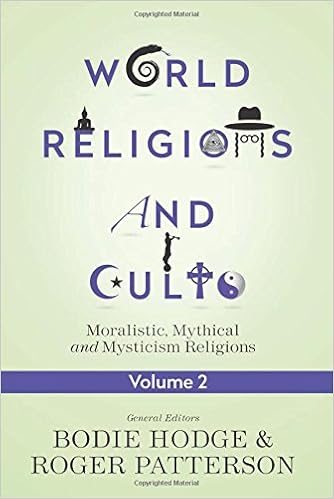Philosophy and Proofs
Atheism
Atheism includes any philosophy which claims that no God or gods exist, including any rational or reasoning creator of the universe.
Read more
Christianity
Christianity is the philosophy that claims that Jesus of Nazareth is the Son of God and Jewish Messiah (or Christ); that he was crucified, died and was buried, and rose again three days later; that his death was an atoning sacrifice for the sins of his followers; and that placing one's trust in Jesus is how any sinful person can be forgiven and made righteous before their creator.
Read more
Empiricism
Empiricism describes any philosophy which claims that all knowledge originates in experience, denying the validity of both deductive reasoning and divine revelation.
Read more
Islam
Islam refers to the specific philosophy of the Muslims, a monotheistic and unitarian belief system declared by Muhammad in 610 AD and described in the book known as the Qur'an.
Read more
Monotheism
Monotheism refers to any philosophy which claims that there is only one supreme creator of the universe.
Read more
Open Theism
Open theism refers to any philosophy which claims that there is a supreme creator of the universe who does not foreknow the outcome of human choices.
Read more
Pantheism
Pantheism denotes any philosophy which claims that god and the universe are identical.
Read more
Polytheism
Polytheism refers to any philosophy which claims that there are multiple supreme creators of the universe.
Read more
Rationalism
Rationalism describes any philosophy that claims that beliefs and opinions should always be logical, deductive conclusions rather than being based on experience, observations, religious teachings, or divine revelation.
Read more
Theism
Theism includes any philosophy which claims that some kind of God or gods exist.
Read more
Trinitarianism
Trinitarianism is the philosophy that there is only one God in terms of essence or being; and that the one God is revealed through three eternally distinct persons, specifically, the Father, the Son (Jesus of Nazareth), and the Holy Spirit. Trinitarianism is unique to Christianity.
Read more
Unitarianism
Unitarianism refers to any philosophy which claims that divine sovereignty is not shared in any way.
Read more

Gilbert Guttlebocker, Defender of Dragons
Riveting, yet absurd; romantic, yet innocent; Gilbert Guttlebocker, Defender of Dragons is a little Roald Dahl, a little Harry Potter, and a little Chronicles of Narnia, all rolled into one. Timothy McCabe collaborates with the great Benedict Ballyhoot to bring you the novel of the century!

In Printed Form
Along with numerous other authors including Don Landis, Bodie Hodge and Roger Patterson, Timothy McCabe contributes analyses of various world religions and cults in this volume from Master Books.
Other Writings
"The Quran does not say the tree was a tree of knowledge, but the Bible does. The Bible also makes Adam's deed a sin, Quran says not. Why is acquiring knowledge a sin in your book, and why is it so bad all subsequent generations are supposedly damned?"
Genesis 2:16-17 The LORD God commanded the man, saying, "From any tree of the garden you may eat freely; but from the tree of the knowledge of good and evil you shall not eat, for in the day that you eat from it you will surely die." The tree was indeed a tree of knowledge according to the Bible. However, it was not just any kind of knowledge -- it was, specifically, "knowledge of good and evil".
Continue reading...
"Does the "problem of evil" show that an all-good, all-powerful, all-knowing god cannot exist?"
The "problem of evil" generally goes something like this. 1. If God had all-power over our universe, he would have been able to prevent the wickedness of Adolf Hitler. 2. If God had all-knowledge of our universe, he would have known how to prevent the wickedness of Adolf Hitler. 3. If God were morally good, he would have wanted to prevent the wickedness of Adolf Hitler. 4. Adolf Hitler was wicked in our universe. 5.
Continue reading...
"In my previous question you beautifully pointed it out yet missed it: Jesus says I have lost NONE and also (same context) lost ONE. Math contradiction, is it N/ONE?"
Thanks for the clarification. I understand your question now. The question is with regards to John 17:12 and John 18:9. In John 17:12, Jesus tells His Father that He lost one of those whom His Father gave to Him, namely, Judas Iscariot. In John 18:9, the author of John tells us that Jesus did not lose one. So which is it? One or none?
Continue reading...